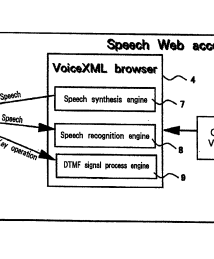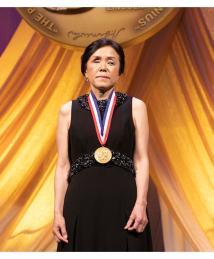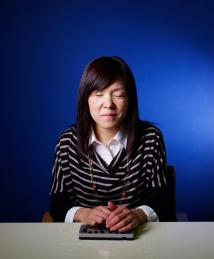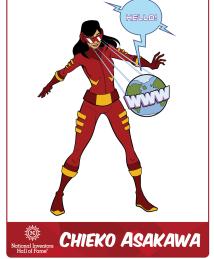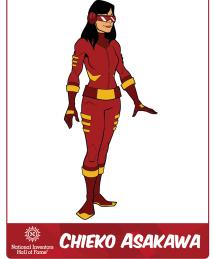Chieko Asakawa
"If [children] can meet [innovators] as early as possible, they will understand innovators are human. Then they can dream to be an innovator in the future."
Chieko Asakawa invented the Home Page Reader (HPR), the first practical voice browser to provide effective internet access for blind and visually impaired computer users. Designed to enable users to browse the internet and navigate webpages through a computer’s numeric keypad instead of a mouse, HPR debuted in 1997, and by 2003 it was widely used around the world.
Asakawa was born in Osaka, Japan, in 1958. A young athlete, she experienced an accident at age 11 that would later influence her innovative journey. “I hit my left eye on the side of a swimming pool,” she said in an interview with the National Inventors Hall of Fame®. “By the age of 14, I was completely blind.”
Following her vision loss, Asakawa grappled with a loss of independence. “After I lost my sight, I couldn’t go anywhere by myself,” she recalled. “I really wanted to be independent. I wanted to be freed from relying on someone. That became my strong desire to ignite innovations later in my life.”
As she made strides in living independently, Asakawa started learning Braille at age 15. She became so adept at reading English Braille, she earned a degree in English literature from Otemon Gakuin University in Osaka in 1982. During her studies, when she found there were no Braille editions of the books used in her classes, she typed out her own, transcribing as her brothers read each one aloud. “It was back then when my quest for accessibility started,” she said.
While considering the kind of work she’d like to pursue after college, Asakawa came across an intriguing story. “I read an article about a blind person who became a computer engineer,” she said. Inspired, she found a two-year computer programming course designed for blind people. After completing this program, she was offered a position at IBM Research - Tokyo to work on digital Braille projects including an English to Braille translation system.
It was at IBM that Asakawa and her team developed HPR in the 1990s. Describing the development process, she said, “I really enjoyed working on it because something that was impossible kept becoming possible.”
Combining existing synthetic-speech technology with HTML programming, HPR was revolutionary. This intuitive voice browser could speak text, frames, images and text links; describe graphical elements like clickable maps; allow users to understand complex tables, such as television listings; and differentiate content through features like reading hyperlinks in a female voice and plain text in a male voice. HPR was quickly translated into 11 different languages. Asakawa recalled, “I was not sure how it was going to be accepted, but soon after it became available, I received many [positive] comments from users all over the world.”
In addition to HPR, Asakawa has made many more contributions to accessibility technology that have helped change how visually disabled individuals communicate and interact. These include a digital system to input and edit Braille; a network allowing Braille libraries to upload documents and books; aDesigner, a disability simulator enabling sighted web developers to mimic the experience of blind users; and most recently, the NavCog project, a collaboration between IBM Research and Carnegie Mellon University to use artificial intelligence, robotics, physical-positioning sensors and computer-aided vision to supply real-world accessibility through smartphone apps.
“After we conducted our user study, everybody said that with NavCog, they are able to move around by themselves with confidence and be independent,” Asakawa said. “Confidence and independence are key to participate in our society actively. I felt technology can keep opening up our lives.”
In 2004, Asakawa earned her doctorate in engineering from the University of Tokyo, and in 2009 she was appointed to IBM Fellow — the company’s most prestigious technical honor. In 2013, the government of Japan awarded her the Medal of Honor with Purple Ribbon for her contributions to accessibility research. Her many other awards include the Achievement Award from the Society of Women Engineers and the American Foundation for the Blind Helen Keller Achievement Award. She is a member of the National Academy of Engineering, the Association for Computing Machinery, the Institute of Electrical and Electronics Engineers, and the Institute of Electronics, Information and Communication Engineers of Japan.
Asakawa currently serves as an IBM Distinguished Service Professor at Carnegie Mellon’s Robotics Institute and the chief executive director of Japan’s National Museum of Emerging Science and Innovation (Miraikan). Discussing her continued drive to innovate and advance accessibility, Asakawa said, “Accessibility is about enabling human capability through innovation, so that everyone can reach their full potential, regardless of age or ability.”
